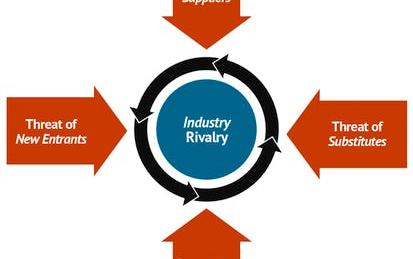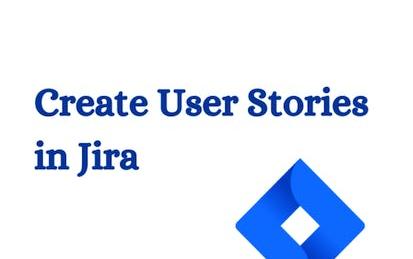

Our Courses

Master The Art of Digital Marketing with Canva
By the end of this project, you will have everything you need to begin marketing your business with Canva. You will have learned how to create your own business logo, business cards, and an eye-catching business launch ad with a call to action. You will have everything you need to unveil your brand to the public with confidence! This process will allow you to tap into your creative side and pick the perfect aesthetics to appeal to your target market and share your brand vision with the world.
-
Course by

-
 Self Paced
Self Paced
-
 2 hours
2 hours
-
 English
English

Continuous Delivery with Google Cloud Deploy
This is a self-paced lab that takes place in the Google Cloud console. Create a delivery pipeline using Google Cloud Deploy, create a release for a basic application, and promote the application through a series of Google Kubernetes Engine targets
-
Course by

-
 Self Paced
Self Paced
-
 1 hour
1 hour
-
 English
English

Build Device Messaging and Communication in Azure IoT Hub
In this 1-hour long project-based course, we'll create an instance of Azure IoT hub.
-
Course by

-
 Self Paced
Self Paced
-
 2 hours
2 hours
-
 English
English

The Art of Negotiation
The art of negotiation comes into play daily in the life of employees at all levels and in every position. Participants explore how current approaches to negotiation strategy and tactics are used, what negotiation entails, types of negotiation relationships that exist from hard bargain to win-win, to fully partnered relationships and personal ones. The course explores the personal and behavioral characteristics of an effective negotiator. Participants discuss how empowerment, power, and authority affect the negotiation process and outcome.
-
Course by

-
 Self Paced
Self Paced
-
 7 hours
7 hours
-
 English
English

AWS: Data Protection and Security Governance
AWS: Data Protection and Security Governance Course is the fourth course of Exam Prep SCS-C02: AWS Certified Security – Specialty Specialization. This course assists learners to design and implement mechanisms for data encryption at rest and in transit. The course is divided into three modules and each module is further segmented by Lessons and Video Lectures. This course facilitates learners with approximately 2:00-2:30 Hours of Video lectures that provide both Theory and Hands-On knowledge.
-
Course by

-
 Self Paced
Self Paced
-
 5 hours
5 hours
-
 English
English

The Great Sustainability Transition: Global challenges, Local actions
Drastic shifts are needed. Get the knowledge and skills to take local action. Setting the stage: Why do we care? Learn about sustainability and staying with the environmental boundaries of our planet. Understand the effects of growing affluence and population growth, and the key challenges we are facing. By participating in the local action exercises you learn how to influence your direct environment. The activities are diverse, from participating in a citizen science project to having discussions with people on climate change.
-
Course by

-
 Self Paced
Self Paced
-
 26 hours
26 hours
-
 English
English

Program Design & Evaluation for Health Systems Strengthening
This course provides an introduction to designing and evaluating to strengthen the health system. After successful completion of all learning activities, course participants will be able to: 1. Define health systems strengthening 2. Describe health systems frameworks and how to incorporate them into evaluation planning 3. Describe how to design and prioritize implementation of health systems programs 4. Detail approaches to evaluate health systems programs, including data sources and study design 5.
-
Course by

-
 Self Paced
Self Paced
-
 8 hours
8 hours
-
 English
English

Protecting Cloud Architecture with Alibaba Cloud
Course Description The Security Exam Preparation Course is a series of online courses covering topics including Linux and Windows OS basics and operations, network fundamentals, host security, application security, network security, and data security.
-
Course by

-
 Self Paced
Self Paced
-
 12 hours
12 hours
-
 English
English

Types of Conflict
Conflict is everywhere and it is impossible to avoid conflicting viewpoints. However, not all conflict is bad, nor is it inherently negative. How conflict is handled makes all the difference. It is through proper identification and understanding of conflict that allows for effective resolutions, some of which may yield positive outcomes.
-
Course by

-
 Self Paced
Self Paced
-
 5 hours
5 hours
-
 English
English

Capstone - Managing Board Change for Higher Levels of Leadership and Governance Effectiveness
The Capstone Project is a service learning experience designed to apply the knowledge and skills developed in the three Specialization courses to a real world leadership and governance situation. It is also intended to develop the participant's capability to act as an agent for positive change in nonprofit organizations. To this end, you will analyze the leadership and governance effectiveness of a real board of directors in an organization of your own choosing (or, if that is not possible, data gathered from a real board provided by the course instructors).
-
Course by

-
 Self Paced
Self Paced
-
 66 hours
66 hours
-
 English
English

The Cosmopolitan Medieval Arabic World
Did you know that Arabic was for centuries the lingua franca in an area stretching from the south of Spain to the Chinese border? Did you know that the Middle East under Muslim rule in those days was the world’s beating heart of trade, but also of science and scholarship? Did you know that Islam in its formative period was heavily influenced by existing cultures in the region, like Indian, Greek, Persian and Byzantine culture? Did you know that for many centuries after the establishment of the Muslim Empire the majority of the population remained largely Christian and Jewish?
-
Course by

-
 Self Paced
Self Paced
-
 25 hours
25 hours
-
 English
English

Securing a Cloud SQL for PostgreSQL Instance
This is a self-paced lab that takes place in the Google Cloud console. In this lab you will deploy a new Cloud SQL instance using a customer-managed encryption key (CMEK). You will configure pgAudit to selectively record and track SQL operations performed against that instance, then you will configure and test Cloud SQL IAM database authentication.
-
Course by

-
 Self Paced
Self Paced
-
 1 hour
1 hour
-
 English
English

Virtual Agent Development in Dialogflow CX for Citizen Devs
Welcome to "CCAI Virtual Agent Development in Dialogflow CX for Citizen Developers", the second course in the "Customer Experiences with Contact Center AI" series.
In this course, learn how to develop customer conversational solutions using Contact Center Artificial Intelligence (CCAI). In this course, you'll be introduced to adding voice (telephony) as a communication channel to your virtual agent conversations using Dialogflow CX.
This is an intermediate course, intended for learners with the following types of roles:
-
Course by

-
 Self Paced
Self Paced
-
 12 hours
12 hours
-
 English
English

Introduction to Physical Chemistry
Chemical reactions underpin the production of pretty much everything in our modern world. But, what is the driving force behind reactions? Why do some reactions occur over geological time scales whilst others are so fast that we need femtosecond-pulsed lasers to study them? Ultimately, what is going on at the atomic level? Discover the answers to such fundamental questions and more on this course in introductory physical chemistry.
-
Course by

-
 Self Paced
Self Paced
-
 19 hours
19 hours
-
 English
English

Using Porter's Five Forces Model for Competitive Analysis
By the end of this guided project, you will be able to use the Porter’s Five Force model to determine the attractiveness and profitability potentials of your industry. The Five Forces is a model that was drawn from industrial organization economics to identify and describe the fundamental economic forces that shape every industry. The five forces are competition in the industry, potential of new entrants, power of suppliers, power of customers, and threat of substitute products. These forces determine the intensity of competition and hence the attractiveness and profitability of an industry.
-
Course by

-
 Self Paced
Self Paced
-
 3 hours
3 hours
-
 English
English

Use Canva to Create an Interactive Mind Map
By the end of this project, you will create an interactive mind map that is shareable across teams, business organizations, or with an audience, you want to market to. You will be able to incorporate a color scheme, images, and other design elements that will draw your audience in. This course will include an introduction to mind maps in Canva, a use for Canva that isn’t a widely known use, but is very useful when building ideas and strategies and effectively communicating them.
-
Course by

-
 Self Paced
Self Paced
-
 3 hours
3 hours
-
 English
English

Visualization of UK accidents using Plotly Express
In this 1.5-hour long project-based course, you will learn to Visualize the data of UK accidents using Plotly Express.
-
Course by

-
 Self Paced
Self Paced
-
 3 hours
3 hours
-
 English
English

Machine Learning Capstone
This Machine Learning Capstone course uses various Python-based machine learning libraries, such as Pandas, sci-kit-learn, and Tensorflow/Keras. You will also learn to apply your machine-learning skills and demonstrate your proficiency in them. Before taking this course, you must complete all the previous courses in the IBM Machine Learning Professional Certificate. In this course, you will also learn to build a course recommender system, analyze course-related datasets, calculate cosine similarity, and create a similarity matrix.
-
Course by

-
 Self Paced
Self Paced
-
 19 hours
19 hours
-
 English
English

Create User Stories in Jira
By the end of this project, you will be able to use Jira Software for project management to plan and manage your work. Jira is one of the most in demand project management tools and learning Jira will help you understand how to plan and manage your work, especially in the software field. This project is for beginners who aim to track, organize, and prioritize bugs, new features, and improvements for certain software releases or projects. In this project you will be able to create well-defined user stories in Jira, you will also create and use Sprints and Epics.
-
Course by

-
 Self Paced
Self Paced
-
 1 hour
1 hour
-
 English
English

IS/IT Governance
Firms make significant investments in IT. In the IS/IT Governance course we will discuss how to govern IT to make sure that the IT investments contribute to organizational goals and strategies. Firms need to formally evaluate significant IT investments. IT investments are also risky, so firms need to consider the risk associated with the investments to appropriately evaluate the investment. We will discuss how to evaluate IT investments. Firms usually make multiple IT investments in a given year. In this course we will discuss how to evaluate a portfolio of IT investments.
-
Course by

-
 Self Paced
Self Paced
-
 10 hours
10 hours
-
 English
English

Supervised Text Classification for Marketing Analytics
Marketing data often requires categorization or labeling. In today’s age, marketing data can also be very big, or larger than what humans can reasonably tackle. In this course, students learn how to use supervised deep learning to train algorithms to tackle text classification tasks. Students walk through a conceptual overview of supervised machine learning and dive into real-world datasets through instructor-led tutorials in Python.
-
Course by

-
 Self Paced
Self Paced
-
 12 hours
12 hours
-
 English
English

Strengthening territorial response for better health
This course was developed by the reference network for the European Regional and Local Health Authorities (EUREGHA), Agència de Qualitat i Avaluació Sanitàries de Catalunya (AQuAS), and Mental Health Europe (MHE) as part of the research project 'Pan-European Response to the Impacts of the COVID-19 and future Pandemics and Epidemics' (PERISCOPE, https://www.periscopeproject.eu/).
-
Course by

-
 Self Paced
Self Paced
-
 21 hours
21 hours
-
 English
English

Optimizing Performance of LookML Queries
This is a Google Cloud Self-Paced Lab. In this lab, you'll learn the best methods to optimize query performance in Looker. Looker is a modern data platform in Google Cloud that you can use to analyze and visualize your data interactively. You can use Looker to do in-depth data analysis, integrate insights across different data sources, build actionable data-driven workflows, and create custom data applications. Big, complex queries can be costly, and running them repeatedly strains your database, thereby reducing performance.
-
Course by

-
 Self Paced
Self Paced
-
 2 hours
2 hours
-
 English
English

Running Distributed TensorFlow using Vertex AI
This is a self-paced lab that takes place in the Google Cloud console. In this lab, you will use TensorFlow's distribution strategies and the Vertex AI platform to train and deploy a custom TensorFlow image classification model to classify an image classification dataset.
-
Course by

-
 Self Paced
Self Paced
-
 2 hours
2 hours
-
 English
English

Toward the Future of iOS Development with Swift
An introduction to the Swift programming language. This will prepare you for more extensive iOS app development and build a foundation for advanced iOS development topics. Upon completing this course, you will be able to: 1. Associate the relationship of Swift and Objective-C and their use in iOS and Mac (OS X) programming 2. Develop the ability to read and write Swift code 3. Distinguish how both programming languages can be used together in applications 4. Demonstrate how to write applications entirely in Swift with the help from several iOS programming samples 5.
-
Course by

-
 Self Paced
Self Paced
-
 21 hours
21 hours
-
 English
English



